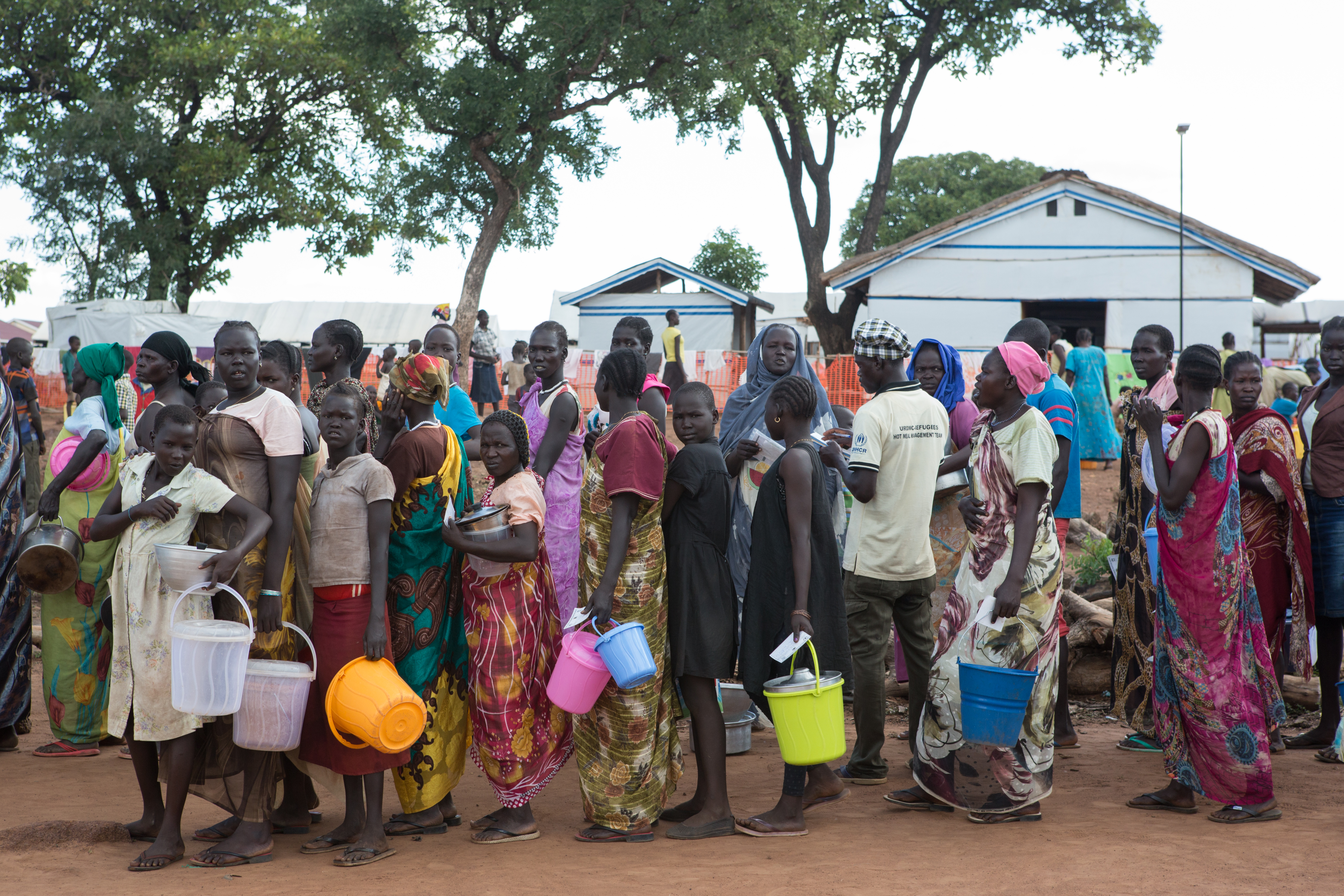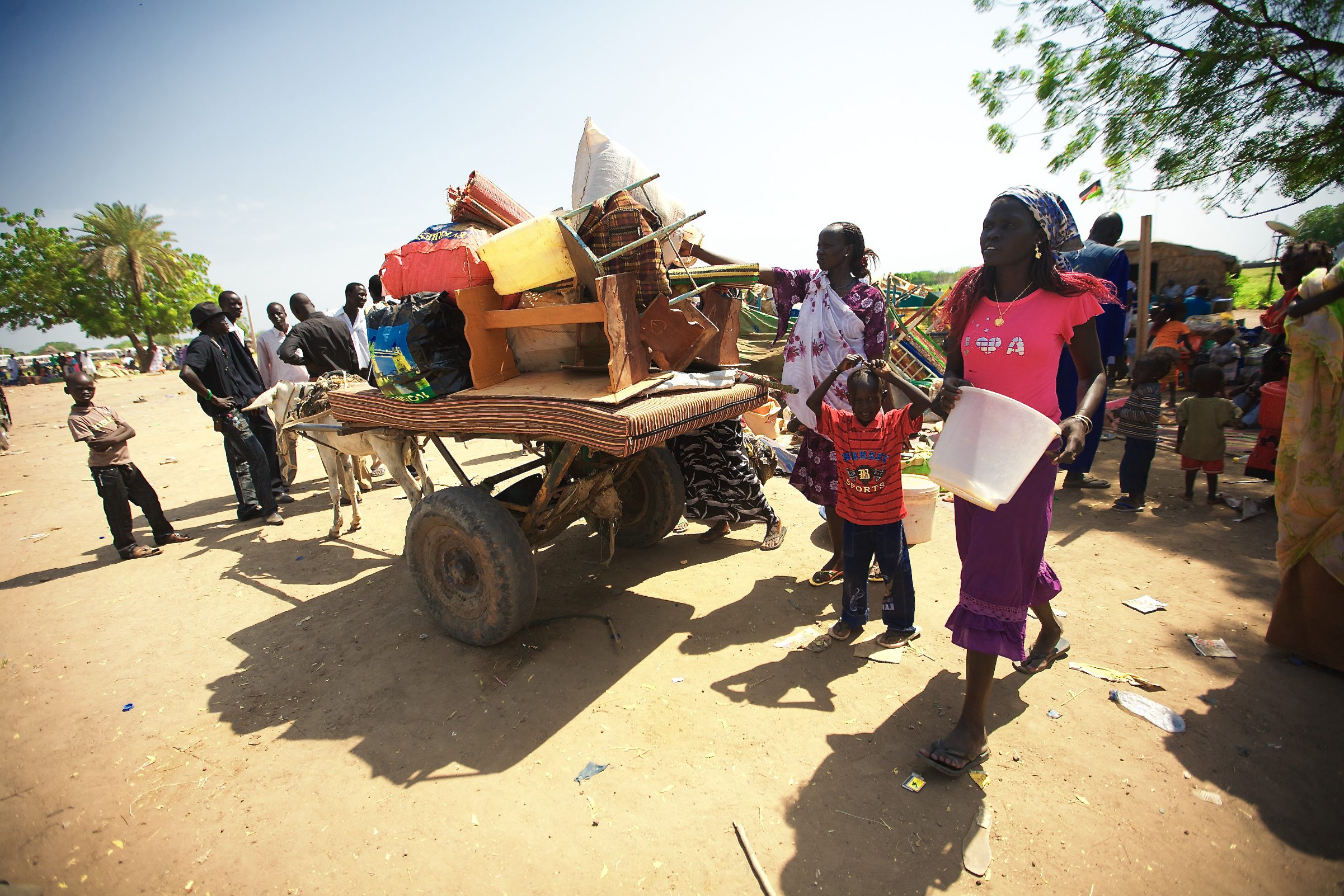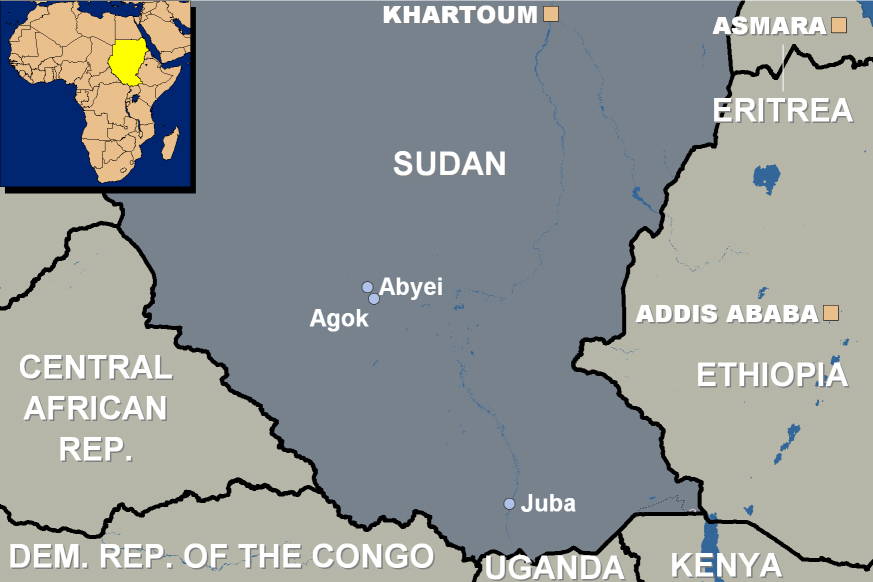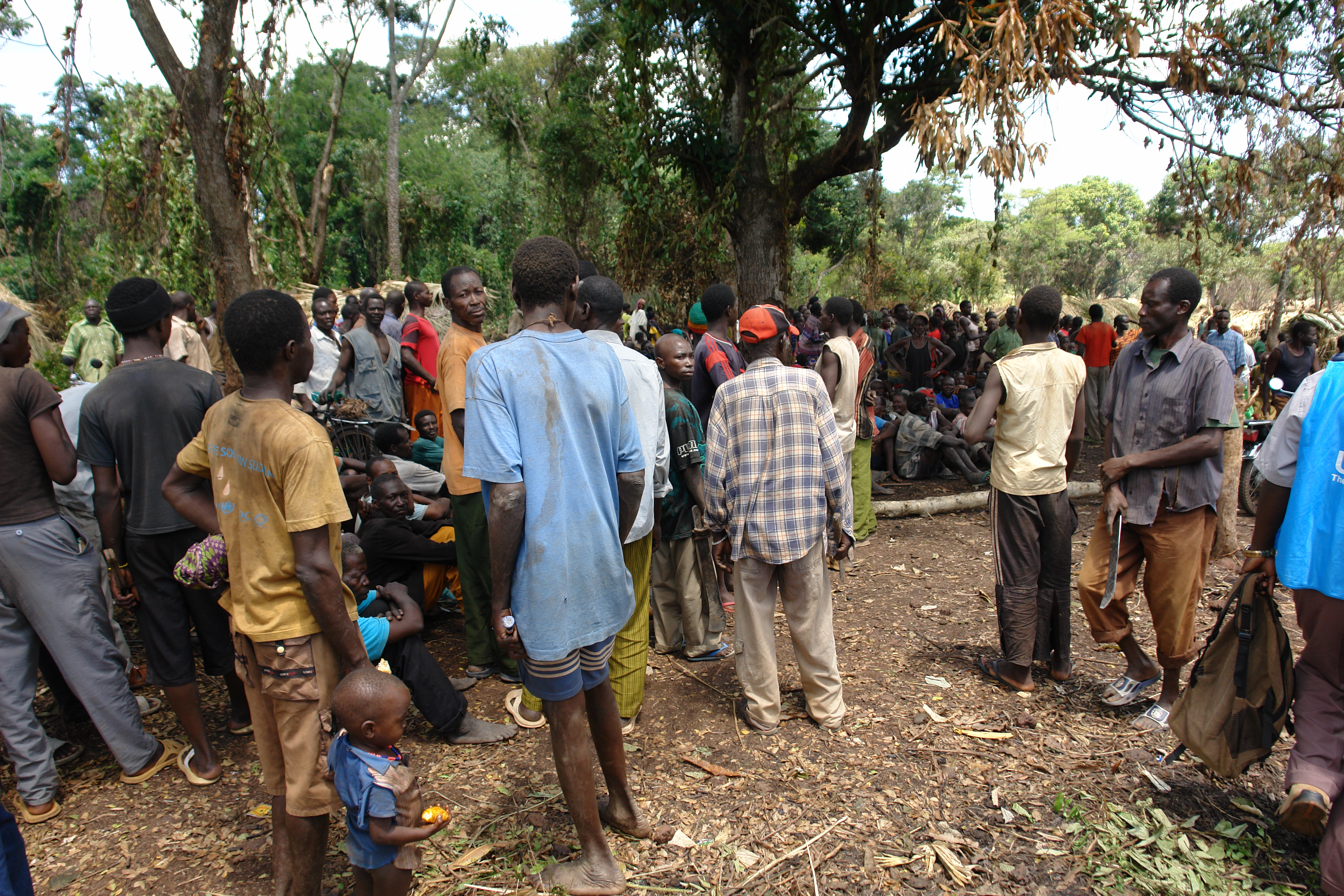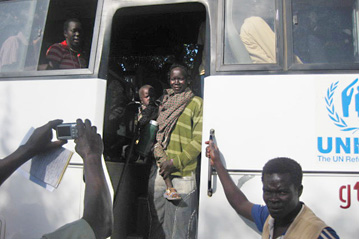South Sudan: Repatriation of Congolese refugees
South Sudan: Repatriation of Congolese refugees
UNHCR is scheduled today to start the repatriation of approximately 850 Congolese refugees from Juba in South Sudan to Kisangani in the north-eastern Democratic Republic of Congo, on an exceptional basis.
Despite the fact that UNHCR does not consider the conditions in the specific areas of return as favourable and conducive to sustainable return and it is not in position to provide any reintegration assistance, we have agreed to facilitate the return of a very specific group of Congolese refugees. The group fled from the post-independence turmoil and the coup that brought Mobutu Sese Seko to power in 1965 in the country he renamed Zaire (now Democratic Republic of Congo). They settled in Juba, which recently became the capital of South Sudan.
These refugees, because of their advanced age and poor living conditions in Sudan, have demanded repatriation to the Democratic Republic of Congo - fully aware of the difficult situation in their areas of return and that there is no reintegration assistance available. Nevertheless, it should be noted that the overall security has somewhat improved in the return areas. The entire group registered for return to the DRC has been thoroughly informed of the difficult situation they will face back home, but remain strongly determined to return.
All of the repatriation flights will be taking off from Juba, Sudan, in the course of the next few weeks. Today's flight is scheduled to bring to Kisangani the first 32 Congolese returnees. They are among 218 refugees who will be returning in three flights between now and May 13. Upon arrival, refugees will be met by UNHCR staff in the DRC and provided with transport assistance to their places of origin in the villages around Kisangani. UNHCR has also alerted the NGOs and agencies operating in the area to offer their support and provide any possible assistance for reintegration of these people.
Overall, this programme presents a challenging logistical operation. In addition to Kisangani, many of the refugees are returning to rural towns such as Buta, Aketi, Isiro, Aru, Dungu. These towns are located in Orientale Province, which is about the size of Spain, and can be reached only by air as roads and bridges are either damaged or do not exist.
In preparation for the return, UNHCR and representatives of the National Commission for Refugees, an inter-ministerial body of the DRC government, have used a UN-sponsored radio to encouraged residents to welcome those coming home after four decades in exile. In addition, residents were invited to assist the returnees in identifying their relatives.


